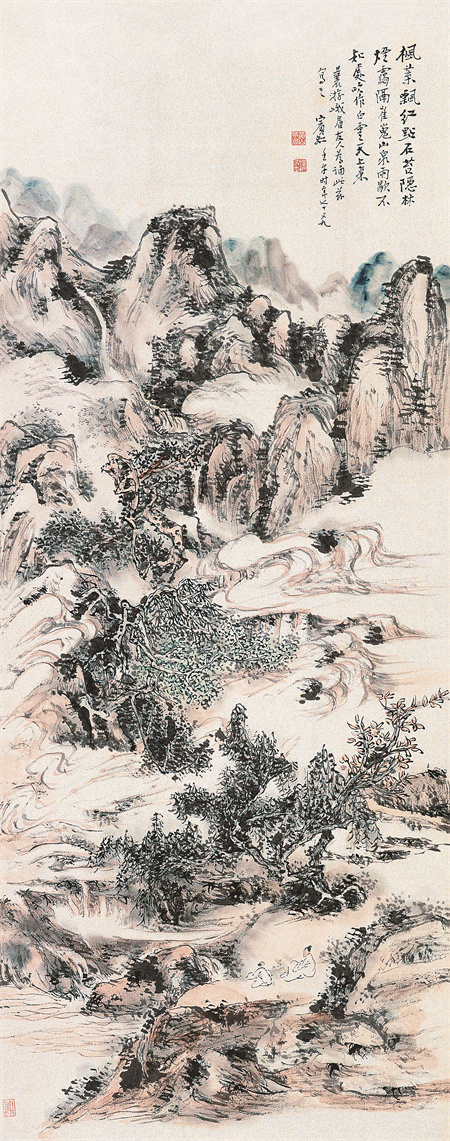

Broad vision
Despite his mastery of painting, Huang wanted to be independent in creation and didn't live from selling his work. Instead, he wrote a lot, worked as an editor at publishing houses and magazines, took on teaching jobs at different schools, and even owned an antique store. He was an active scholar, keen on socializing, and often organized salons for members of cultural circles, sometimes at his store.
He was a consummate painter, calligrapher, and seal engraver, versed in the studies of archaic Chinese characters on objects such as oracle bones, ceremonial bronzes and stone tablets. He was also knowledgeable about gastronomy, tai chi, weiqi (Go) and traditional Chinese medicine.
Zhang Jian, co-curator of the exhibition and a professor of modern Chinese art at the China Academy of Art, says that Huang was an erudite master scholar, with wide-ranging interests. "Because of his extraordinary vision of art and the world, Huang was able to breathe new life into Chinese painting, and thereafter revive Chinese culture."
Huang died in 1955, but his thorough research continues to benefit others. At the memorial service held the day after his death, his family made a large donation to the country including his works and his vast collection of antiques, which include paintings, calligraphy and vintage seals, ceramics, jade objects, stone rubbings, manuscripts and letters. These are all held in the collection of the Zhejiang Provincial Museum, and some of them are now on show in the current exhibition.